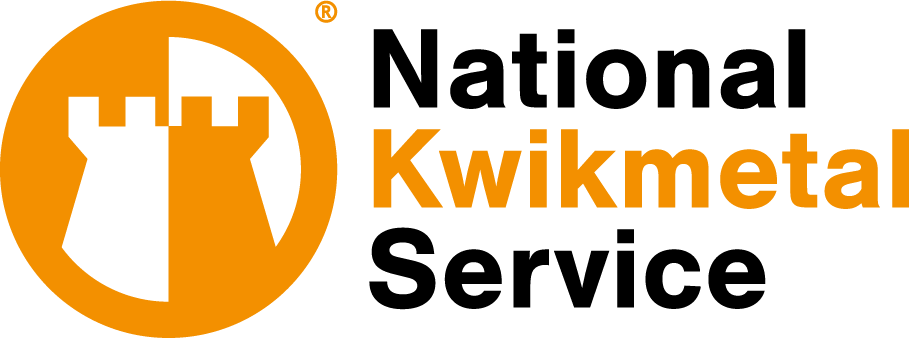
Aluminum, being one of the most versatile and widely used metals, has remarkable mechanical properties that make it an essential material across various industries. The tensile strength of aluminum, specifically, plays a crucial role in determining the performance and reliability of the products it is used to create.
Below, this aluminum coil slitting company in Irvine, California is going to explore the concept of tensile strength, its importance in the context of aluminum, the factors that influence it, its testing methods, and more.
Tensile strength is a fundamental mechanical property that defines a material’s ability to withstand tensile (pulling) forces without breaking. In the case of aluminum, it refers to the maximum stress that a material can endure while being stretched or pulled before necking, which is the point where the material becomes narrower. This tensile strength is typically expressed in pounds per square inch (psi) or megapascals (MPa) and is a critical parameter in assessing the suitability of aluminum for specific applications. Understanding the tensile strength of aluminum is essential for engineers and manufacturers, as it directly impacts the material’s performance under various loading conditions.
Aluminum’s impressive tensile strength, combined with its lightweight nature, corrosion resistance, and thermal conductivity, makes it a preferred choice in industries such as aerospace, automotive, construction, and consumer goods.
The ability of aluminum to maintain its structural integrity under tensile loads, even at relatively high temperatures, further enhances its appeal for a wide range of applications. By comprehending the concept of tensile strength and its significance in the context of aluminum, manufacturers and end-users can make informed decisions to ensure optimal performance and safety in their products and projects.
The importance of tensile strength in aluminum cannot be overstated, especially in applications where the material is subjected to significant mechanical stresses. Whether it’s in the form of aluminum sheets, extrusions, or castings, understanding the tensile strength of the material is paramount for ensuring the structural reliability and longevity of the end products.
For instance, in the aerospace industry, where the demand for lightweight yet strong materials is critical, aluminum’s high tensile strength makes it an indispensable choice for aircraft components, such as wings, fuselage panels, and structural elements.
In the automotive sector, the emphasis on fuel efficiency and vehicle performance has led to the widespread use of aluminum alloys with high tensile strength for manufacturing body panels, chassis components, and engine parts. The ability of aluminum to withstand tensile loads while contributing to overall weight reduction has revolutionized the automotive industry, enabling the production of more fuel-efficient and environmentally friendly vehicles.
Additionally, in the construction industry, the tensile strength of aluminum plays a vital role in the structural integrity of buildings, bridges, and other infrastructure, where the material’s ability to resist deformation and cracking under tension is crucial for ensuring safety and durability.
There are several factors that can affect the tensile strength of aluminum — ranging from the alloy composition and processing techniques used by your aluminum coil slitting company in Irvine, California to the environmental conditions and service temperatures. The choice of alloy, specifically, significantly impacts the tensile strength of aluminum, with different alloying elements contributing to varying levels of strength and performance.
The manufacturing process, including casting, extrusion, and heat treatment, also plays a critical role in determining the final tensile strength of the aluminum material. For instance, rapid solidification techniques and controlled cooling processes can result in improved tensile properties by refining the microstructure and reducing the presence of defects within the material.
Moreover, certain environmental factors (such as exposure to corrosive substances, temperature variations, and mechanical loading conditions) can affect the tensile strength of aluminum over time. Understanding these influencing factors is essential for optimizing the design and selection of aluminum materials to meet specific performance requirements in diverse applications. By considering these factors, engineers and material scientists can tailor the tensile strength of aluminum to suit the demands of the intended application — whether it’s in the form of high-strength structural components or lightweight, formable sheets for consumer products.
The accurate assessment of tensile strength is achieved through standardized testing methods that adhere to industry-recognized protocols and specifications. Tensile testing, also known as tension testing, is the most common method used to determine the tensile strength of aluminum and other materials.
During this test, your aluminum coil slitting company in Irvine, California will expose a sample of the material to controlled tensile forces until it reaches its breaking point, allowing for the precise measurement of the maximum stress endured by the sample. The data obtained from tensile tests provides valuable insights into the material’s mechanical behavior, including its elastic and plastic properties, ultimate tensile strength, yield strength, and elongation at failure.
In addition to conventional tensile testing, advanced techniques (such as strain rate testing, fatigue testing, and fracture mechanics analysis) are employed to further characterize the tensile properties of aluminum under varying conditions. These testing methods play a crucial role in validating the performance of aluminum materials for specific applications, ensuring compliance with quality standards, and identifying potential areas for improvement. Furthermore, the use of non-destructive testing methods, such as ultrasonic testing and digital imaging, offers valuable non-invasive means of assessing the tensile strength and integrity of aluminum components without compromising their structural integrity.
Are you ready to leverage the power of high tensile strength aluminum for your projects and products? Looking to partner with the top-rated aluminum coil slitting company in Irvine, California? If so, look no further than the team at National Kwikmetal Service (NKS). With our expertise in processing and delivering custom slit aluminum coils tailored to your exact specifications, we can help you get access to the high-quality aluminum materials you need.
Contact us today at 1-800-722-5029 to learn how we can help.
Phone: 847-257-6570
Phone: +52.811.6363844
Phone: 615-793-4700